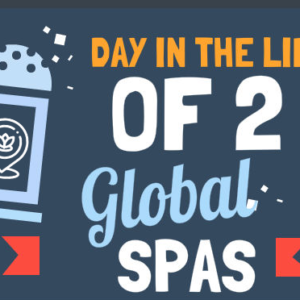Spa Managers- Why “Fairness” is Hurting You

Managing a team of spa professionals is not easy. Sometimes in the manager’s attempt to treat everyone fairly, despite their performance, individual respect is lost.
When you ask workers what matters most to them, feeling respected by superiors often tops the list. In a recent survey of nearly 20,000 employees worldwide, respondents ranked respect as the most important leadership behavior. Yet employees report more disrespectful and uncivil behavior each year.
What accounts for the disconnect? Although employees who aren’t shown respect are acutely aware of its absence, people who feel respected on a regular basis—typically, those in managerial or other high-status roles—don’t think about it very much. So, leaders may simply be unaware of the problem. A bigger issue is that leaders have an incomplete understanding of what constitutes workplace respect—so even well-meaning efforts to provide a respectful workplace may fall short.
Research indicates that employees value two distinct types of respect. Owed respect is accorded equally to all members of a work group or an organization; it meets the universal need to feel included. It’s signaled by civility and an atmosphere suggesting that every member of the group is inherently valuable. In environments with too little owed respect, we typically see over-monitoring and micromanagement, abuse of power, and a sense that employees are interchangeable.

Earned respect recognizes individual employees who display valued qualities or behaviors. It distinguishes employees who have exceeded expectations and, particularly in knowledge work settings, affirms that each employee has unique strengths and talents. Earned respect meets the need to be valued for doing good work. Failing to recognize employees’ achievements are signs that it is lacking.
One of the subtler challenges in creating a respectful atmosphere is finding the right balance between the two types of respect.
For example, spas with lots of owed respect but little earned respect can make individual achievement a low priority for employees, because they perceive that everyone will be treated the same regardless of performance.
As a retail trainer, I see this a lot! A few members of the spa team are selling retail through the roof yet they’re never recognized for their achievements. Personal conviction to excellence is their motivation, not their manager.
By contrast, spas with low owed respect but high earned respect can encourage excessive competition among employees. It could hinder people from sharing critical knowledge and it often promotes cutthroat, zero-sum behavior. This benefits no one.
When they understand these nuances, managers can craft an environment that is right for their situation—in most cases, one with high levels of both kinds of respect.
Article edited from https://hbr.org/2018/07/do-your-employees-feel-respected author Kristie Rogers.






